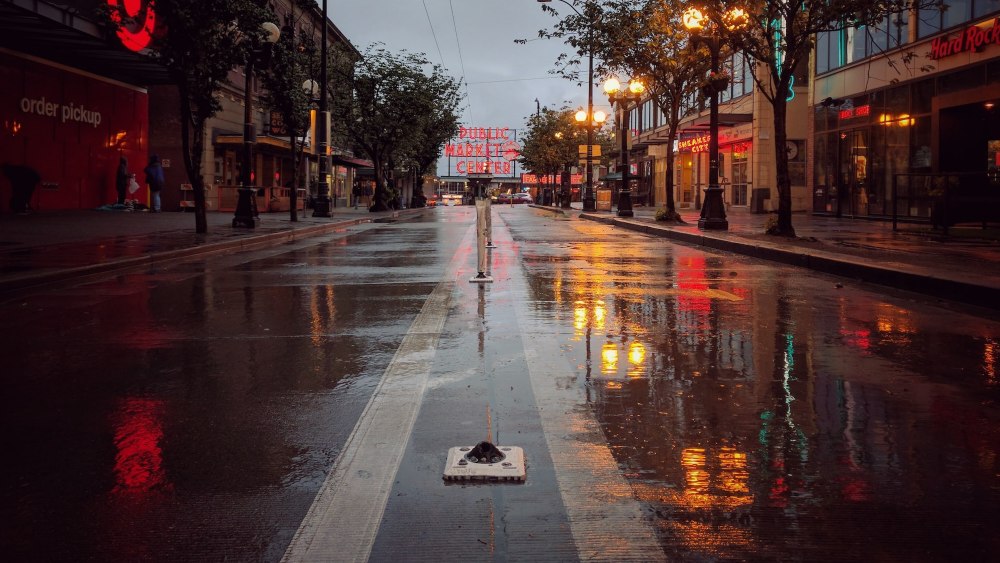
A prolific Seattle writer, novelist, teacher, and journalist, Peter Bacho has a new memoir out this spring, Uncle Rico’s Encore: Mostly True Stories of Filipino Seattle (University of Washington Press). Like most good books about Seattle (Skid Road, No-No Boy), basically a white middle-class town, this one focuses on the struggles of ethnic groups, seeing the city from its complex and funny underside.

As a longtime resident of Madrona, I found many familiar landmarks brought to new life: St. Teresa elementary school, Immaculate Conception Church, heart of Filipino Catholicism, O’Dea High School, and the intense, three-man basketball games at Madrona Elementary’s playground.
It’s an important evocation of Filipino life in Seattle, a city matched by Stockton, California as the twin centers of Filipino-American life. Migrants from the Philippines came in two waves. The early wave in the 1920s found work in Alaska canneries (hence the Seattle base) and like Bacho’s father, California fields — both of which created militant unions. Seattle Local 37 of the ILWU was led by a gruff one-legged communist, Chris Mensalvas. The second surge arrived after the change in immigration laws in 1968.
Most of the Bacho stories have a powerful positive spin: how much Catholic Schools insist on taking all students seriously; the role of sports (basketball at O’Dea, baseball, and boxing) in building boyish confidence and mixing the races; and the inspiring civic roles of people like the author’s mother, Reme (who fought the Kingdome), and Fred Cordova’s drill team at the Filipino Youth Activities Center; the progressive and heroic roles of Filipino independence and labor leaders; and the loving, firm attention of family and relatives like the eccentric Uncle Rico, who has a mysterious “encore” right after his death.
It mostly worked out well for the author, who went on to college and the UW Law School. “A life of meaning, a good life overall,” Bacho concludes and the book demonstrates. One aspect: how much FUN it was to grow up in Seattle: riding the bus to go fishing on the waterfront, hanging out at Tai Tung, goofing off, playing pickup basketball. Where has that gone?
There is also a streak of defiance and protest, Filipino traits. One target is Seattle Public Schools, “where racial stereotypes are pervasive, and indifferent teachers and counselors just go through the motions,” sending Asian boys to Vietnam rather than to college. Another target is the Philippines, riddled with class prejudice and a sham democracy that kept the elites in power and the Americans happy with their military bases.
The memoir traces a familiar arc from communal poverty and then, through education and mentors, to success as an honored author, lawyer, and teacher. But the book is veined with dissent. Bacho grows up in a very male world — sports, hanging out, worries about getting drafted for Vietnam. The close-knit world of Filipino families is dissolving as open housing allows moving away by many anchors of the community. Bacho is a tough-minded liberal, alarmed at the way American Filipinos become (according to a 2017 Pew report he cites) Trump’s strongest support group.
The deepest paradox in the book has to do with the complex identities of an American ethnic group in a passive-hostile city. As he learned new ways to survive in the boxing ring, Bacho observes, “I had to be someone I wasn’t to be someone I was.” The author lets that paradox pass unexplored. But it’s a sentence I can’t forget.
Discover more from Post Alley
Subscribe to get the latest posts sent to your email.

Dear David,
Thanks for featuring Peter Bacho’s powerful, lively and engrossing recent book “Uncle Rico’s Encore,” an evocative memoir of Filipino Seattle.
I think many of your readers will enjoy my recent conversation with Peter for the History News Network. I’ve known Peter since we were classmates at UW Law School a half century ago. In our conversation, Peter talks about the inspirations for his book and shares glimpses of his family and friends from his school days in central Seattle on. He also discusses his career path from his brief but stellar legal career to university teaching to daredevil reporting (covering the Philippines and more), to award winning writer (1992 American Book Award for his novel Cebu), and to life as a renowned professor. You’ll get a sense of Peter’s wisdom, wit and humor from the article. We also share a bit about our hearts. Here’s a link. https://historynewsnetwork.org/blog/154624
Thanks for reading.
As I am primarily Filipino-American myself, I wonder if Bacho discusses the label of Asian-Americans being the “model minority”. That term strikes me as a backhanded compliment at best, insulting at worst.
Re: the Filipino support of Trump cited above, that’s likely due to religion. Filipino-Americans are overwhelmingly Catholic, the church has become a lot more vocal about opposing abortion in recent years, and Trump exploited religious conservatives’ anti-abortion stance to expand his base.
“Primarily” what are you the rest of the time? Cool thing about books, if you want to know what the author discusses just read it or ask the author himself. Peter Bacho is a great conversationalist.
Model-minority, happy Asian…reminds me of the torrent of phrases thrown at brown skinned Americans throughout my childhood. So many stereotypes so little time…
@Sunday Reiser: I’m only 3/4 Filipino, my paternal grandmother was Eastern European who married a Filipino and assimilated into Filipino-American culture. Being mixed race but only exposed to one culture is, well, interesting.